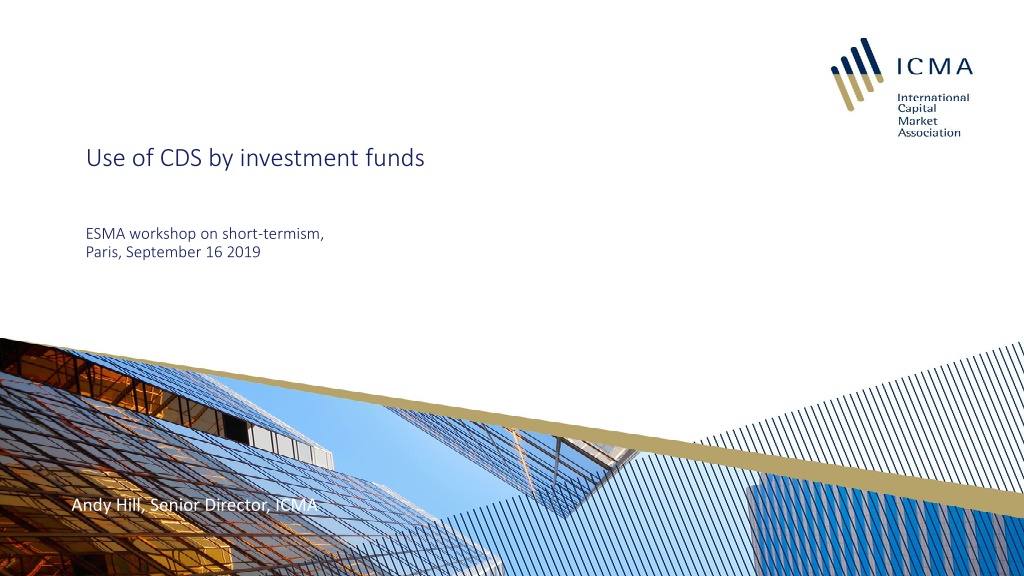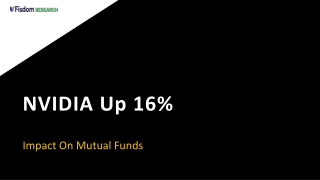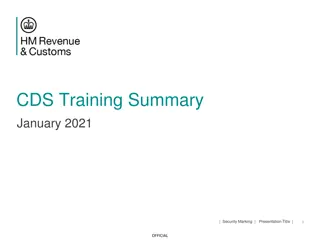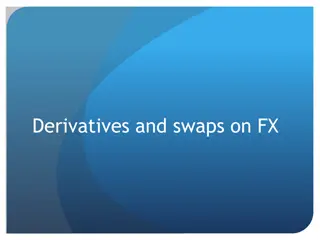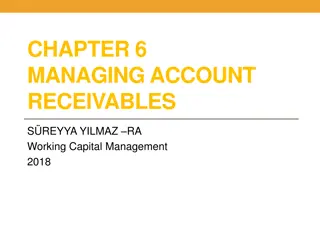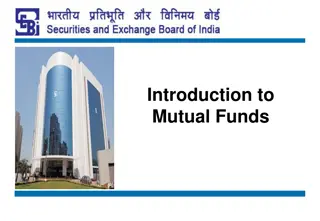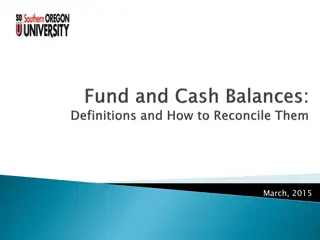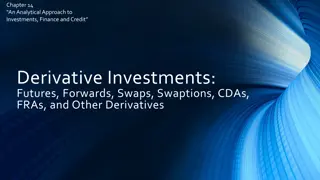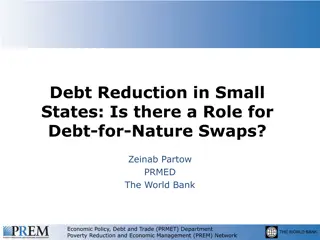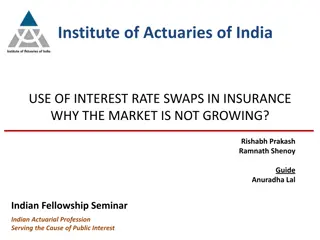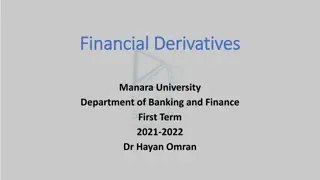Use of Credit Default Swaps (CDS) by Investment Funds
Presentation at the ESMA workshop discussed the potential benefits and costs of using Credit Default Swaps (CDS) by investment funds. It highlighted the various uses of CDS, including risk management, alternative liquidity, and investment strategies. Evidence shows that a small percentage of UCITS funds utilize CDS for portfolio diversification and better liquidity. Further research is recommended in this area.
Download Presentation

Please find below an Image/Link to download the presentation.
The content on the website is provided AS IS for your information and personal use only. It may not be sold, licensed, or shared on other websites without obtaining consent from the author.If you encounter any issues during the download, it is possible that the publisher has removed the file from their server.
You are allowed to download the files provided on this website for personal or commercial use, subject to the condition that they are used lawfully. All files are the property of their respective owners.
The content on the website is provided AS IS for your information and personal use only. It may not be sold, licensed, or shared on other websites without obtaining consent from the author.
E N D
Presentation Transcript
Use of CDS by investment funds ESMA workshop on short-termism, Paris, September 16 2019 Andy Hill, Senior Director, ICMA
ESMA workshop on short-termism: Use of CDS by investment funds Potential benefits of CDS Potential benefits of CDS A tool for credit risk management Facilitating supply of credit to the market Price discovery Synthetic bond investment ISDA (2016), Single-name Credit Default Swaps: A Review of the Empirical Academic Literature
ESMA workshop on short-termism: Use of CDS by investment funds Potential costs of CDS Potential costs of CDS Increased risk-taking and diminished monitoring (by banks) Empty creditors and negative economic interests Excessive volatility / speculation Systemic risk ISDA (2016), Single-name Credit Default Swaps: A Review of the Empirical Academic Literature
ESMA workshop on short-termism: Use of CDS by investment funds Uses of CDS by investment funds Uses of CDS by investment funds Risk management / hedging Alternative liquidity Digesting inflows Investment strategies: Basis trades Curve trades Skew Another tool in the toolbox ICMA (2018), The European Corporate Single Name Credit Default Swap Market
ESMA workshop on short-termism: Use of CDS by investment funds Uses of CDS by investment funds Uses of CDS by investment funds - - evidence evidence 7% of UCITS funds (sample >18,500) use CDS Combined 387bn gross notional (<5% of EU CDS market) Main types of users are fixed income funds and alternative funds Around two thirds of UCITS gross CDS notional is based on CDS indices, and a third on single name CDS For SN-CDS: 39% NFCs; 30% sovereign (mainly EM) UCITS funds rely on CDS for multiple purposes Tend to be aggregate sellers ( =>long exposure / better liquidity) Portfolio diversity (indices) Basis Further research is needed ESRB (2019), Use of credit default swaps by UCITS funds: evidence from EU regulatory data
ESMA workshop on short-termism: Use of CDS by investment funds References References Calice, G., and Adesina, T., 2018, Large, Global Asset Management Firms and the Credit Default Swap Market , EFAMA Czech, R., 2019, Credit default swaps and corporate bond trading , Bank of England, Staff Working Paper No.810, July Duffie, D., 2010, Is There a Case for Banning Short Speculation in Sovereign Bond Markets? Banque de France Financial Stability Review No. 14 (July) Duffie, D., and Zhou,C., 2001, Credit derivatives in banking: useful tools for managing risk? Journal of Monetary Economics, No. 48 ESRB, 2019, Use of credit default swaps by UCITS funds: evidence from EU regulatory data Hakenes, H., and Schnabel, I., 2010, Credit Risk Transfer and Bank Competition , Journal of Financial Intermediation Vol. 19 Hu, H. T. C., and B. Black. 2008, Debt, Equity and Hybrid Decoupling: Governance and Systemic Risk Implications , European Financial Management Vol. 14, No. 4 Hu, H. T. C., and B. Black, 2008, Equity and Debt Decoupling and Empty Voting II: Importance and Extensions , University of Pennsylvania Law Review Vol. 156, No. 3 (January) ICMA, 2018, The European Corporate Single Name Credit Default Swap Market ISDA, 2016, Single-name Credit Default Swaps: A Review of the Empirical Academic Literature
